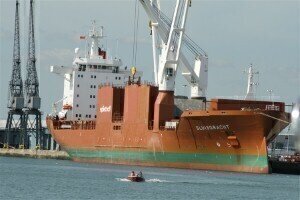Air clean up
Zero-carbon future for the Shipping Industry is achievable
Sep 24 2020
Transitioning the shipping industry to carbon-free fuels and renewable energy will eliminate emissions approximately equivalent to those of Japan or Germany while empowering local communities and economies.
As part of Climate Week NYC, Ocean Conservancy has today released a new report, prepared by Ricardo, that presents a compelling case for the widespread adoption of ‘electrofuels’ to transition the international shipping industry from being one of the largest emitters of greenhouse gas emissions to a zero-carbon future. These electrofuels are synthetically derived from hydrogen or ammonia which are produced using renewable energy, as a drop-in replacement for fossil fuels.
The Zero-Carbon for Shipping report, developed by Ricardo’s alternative energy experts, presents South and Central American case studies that demonstrate how existing technologies, such as electrofuels and renewable energy, will do a lot of the work required to transition the shipping industry to a zero-carbon future. South and Central America have a lively shipping industry with total imports and exports to the region respectively of around $1 trillion. Combined with increasing wind and other renewable energy sources, South and Central America are primed to lead the shipping industry away from fossil fuel dependency.
The report highlights an example of implementation where the adoption of electrofuels in Porto do Pecém, Brazil, would not only decarbonize the local shipping industry, but could also provide a carbon-free source of fuel for local steel and chemical manufacturing.
The Global Maritime Forum estimates that the total decarbonization of the shipping industry by 2050 will cost $1.9 trillion. This price tag may seem high, but in 2018, global energy investment was $1.8 trillion. “We have the opportunity to spend one year’s worth of energy investment to eliminate the equivalent of Germany’s greenhouse gas emissions. With that goal in mind, we need to advance the shipping decarbonization models Zero-Carbon for Shipping puts forward,” said Dan Hubbell. “The good thing is we already have the necessary technology to eliminate emissions and achieve a zero-carbon future for shipping.”
While electrofuels are carbon-free, they don’t contain as much energy per unit volume as fossil fuels, so with similar onboard storage capacity, zero-carbon ships will need to stop at ports more frequently to refuel. Puerto Shougang Hierro, Peru, is an ideal location to provide refuelling for zero-carbon ships. The port is situated is along a busy trade route and has the ability to greatly expand its wind and solar infrastructure to provide enough power to support the increased shipping and refuelling activity. Further developing the renewable energy infrastructure will also reduce the costs of renewable energy for other sectors all while providing jobs for people who relied on the fossil fuel industry for their livelihoods.
Events
May 11 2025 Vienna, Austria
May 18 2025 Algiers, Algeria
23rd International Water Management Exhibition
May 20 2025 Prague, Czech Republic
Singapore International Water Week Spotlight 2025
Jun 23 2025 Singapore
Jun 25 2025 Sao Paulo, Brasil














